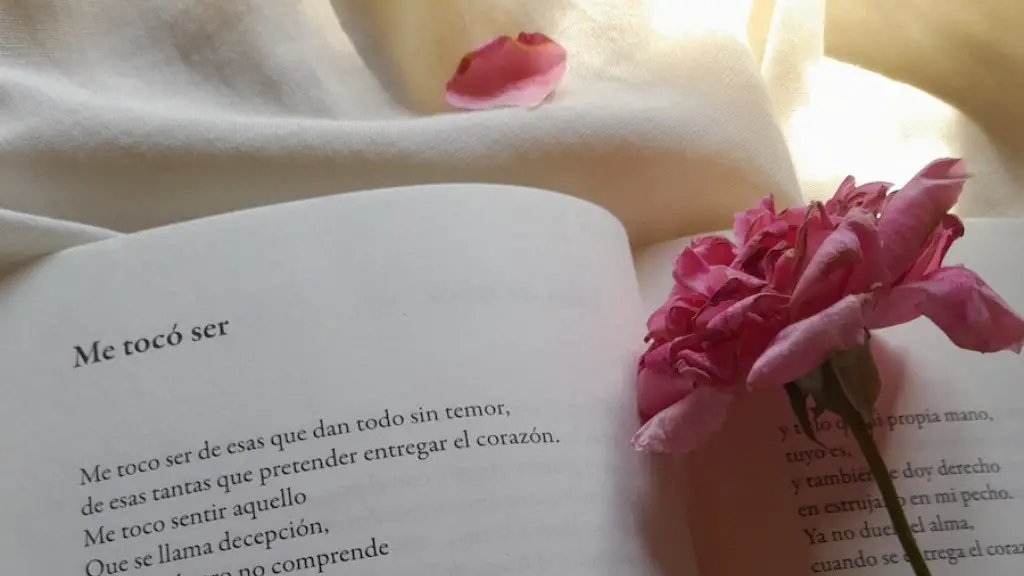Prose, Drama, and Poetry – An Overview
Prose, drama, and poetry are three distinct forms of literature, yet are connected through common elements and purpose. Each can tell stories, enliven emotions, communicate wisdom, and even document history. Understanding the similarities between the three of them is important to being well-rounded in the appreciation and analysis of literature.
Prose is written language formatted in sentences and paragraphs. Its purpose is to communicate ideas, opinion, and stories. Common forms of prose includes essays, autobiographies, novels, and short stories. Despite some people believing that it should be “flowing” in order to be “good prose,” prose can be written any way that an author likes as long as the reader can follow the narrative. The language used can be informal or formal, depending on the purpose of the text. In some cases, authors may even mix the two styles.
Drama is a printed, performed, or spoken form of literature. It usually incorporates characters and some form of conflict, and is written as a play or screenplay. The purpose is to tell a story and evoke emotion through the use of dialogue and stage direction. While not all drama involves acting, it can be used as a type of performance art. Drama is commonly divided into different types, such as tragedy, melodrama, and comedy. Plays are classified as a form of prose, or in some cases, verse.
Poetry is a type of literature that uses figurative language and images to express ideas, emotions, and stories. Poems are often shorter than prose and use sound and meaning to convey meaning. They come in a variety of forms, such as sonnets, haikus, and epics. Some styles of poetry are lyrical and musical while others are more structured and intellectual. Poetry expresses its message through the use of imagery, metaphors, and other forms of figurative language.
Exploring Structure in Prose, Drama, and Poetry
The structure of prose, drama, and poetry are all very different, though there are similarities between them. Prose is typically written in sentence or paragraph form, which enables the author to convey their ideas or story in a straightforward way. While there is an expectation that the flow of the ideas should be maintained, there is no set metre or structure to it.
Drama relies heavily on dialogue and stage directions, as well as on the format of the play itself. There is usually a protagonist and antagonist as well as other characters who help to advance the plot. Additionally, the format of the play helps to keep the story and actions organized and the dialogue in its proper place.
Poetry has a very specific structure that identifies it from other forms of literature. Each line has a set number of syllables and the poem usually follows a certain rhythm. Poetry also relies heavily on figurative language to evoke emotion, imagery, or a deeper understanding of the poem’s meaning. Commonly used devices in poetry include alliteration, rhymes, similes, and metaphors.
Genres of Prose, Drama, and Poetry
Within the broad categories of prose, drama, and poetry, there are numerous genres. Examples of genres of prose include autobiography, historical fiction, fantasy, and horror. Examples of genres of drama include tragedy, comedy, and classical drama. When it comes to poetry, there are a variety of poetic styles that are used, including haikus, sonnets, epics, and blank verse.
The genre of a piece of literature determines, in large part, the tone, subject matter, and characters, as well as the way the story is presented. For example, horror fiction is likely to contain elements of fear and suspense while a comedy is likely to be light-hearted and humorous. There is often a lot of overlap between genres and subgenres, which allows authors to create unique variations within a particular style.
Each genre has its own conventions and, in some cases, rules. While poetry does not necessarily have to adhere to certain rules, there are commonly accepted guidelines for lyric styles and the use of poetic devices. Likewise, the structure and format of a play must be consistent in order to be considered a piece of effective drama.
Universal Themes
Despite their differences, prose, drama, and poetry all share certain themes. These include ideas about love, life, death, and morality, but these themes manifest and play out differently in each form of literature. For example, in prose, a story may explore the tragedy of star-crossed lovers while in drama, the story may explore the idea of family dynamics. In poetry, the idea of death may be explored through the use of metaphor.
The use of common themes in literature allows readers to relate to the characters and story in a meaningful way. Whether it is through humor, tragedy, or suspense, the intention of all types of literature is to entertain and engage its audience. Additionally, the use of common themes is a way for writers to explore different aspects of human nature and the world around us.
Statistics and Figures
The importance of reading prose, drama, and poetry is clear from the current statistics and figures. For instance, according to a report from the National Endowment for the Arts, the number of readers engaging with literature has increased by more than 10 % since 2002. In addition, there has been an increase in the number of plays being performed in the United States, as reported by the Theater Communications Group. Furthermore, according to Poetry Foundation, more than half of Americans now read poetry as well.
As the numbers of readers, viewers, and speakers of poetry, drama, and prose continue to increase, it is becoming increasingly important to understand the differences between the forms of literature. Knowing the genres and conventions, as well as the similarities between them, can help both casual readers and scholars appreciate literature in all its forms.
The Impact of Prose, Drama, and Poetry
The impact of literature on society is immense. Beyond simply entertainment, literature can enlighten, stimulate thought, and create social change. For example, several authors have used prose and poetry to alert the world to the systemic injustice of slavery. Through the power of the written word, authors were able to challenge outdated beliefs and promote equality.
Dramas can also have a powerful impact. Sometimes, the production of a play or screenplay can be the first step in bringing about social change. Additionally, the stories told in plays and screenplays can spark conversations about important issues such as racism, sexism, and poverty. No matter the form, literature can be a powerful tool for creating awareness and inciting conversation.
Aesthetic Appreciation of Prose, Drama, and Poetry
The aesthetic appreciation of literature is also important. In addition to providing entertainment and knowledge, prose, drama, and poetry can evoke strong emotions and stimulate the imagination. It can be argued that literature is an art form, since it has the ability to move us and make us think. Writers are able to use the power of language to create a sense of beauty, whether with words or stage direction.
The aesthetic appreciation of literature is often subjective. Each reader has their own unique experience when it comes to connecting with a story or poem. Additionally, the experience can differ between readers, as each person connects with the piece in a different way. However, there are commonalities that individuals can share in their appreciation of literature.
The Power of Collaboration
Collaboration between authors is another way that literature can be created and appreciated. Over the centuries, authors have worked together to create plays and poetry, enabling readers to experience a story from multiple perspectives. For instance, Shakespeare often collaborated with other writers when it came to his plays. In some cases, he would even combine two existing stories together to create a larger narrative.
Collaboration between authors and performers can also enhance the appreciation of literature. The addition of music, visuals, and movement adds an extra layer to the story or poem, enabling readers to connect with the theme in a different way. Similarly, collaboration between readers and authors can enrich the understanding of the text, as readers can offer additional insight and analysis.
Conclusion
Prose, drama, and poetry are three distinct forms of literature yet are connected through common elements and purpose. Understanding the points of overlap between them is important to gaining a full appreciation for their power and beauty. Each form offers unique ways of expressing ideas, emotions, wisdom, and stories. Whether engaging with them individually or in collaboration, literature provides us with a unique way of engaging with the world and understanding our experiences.





